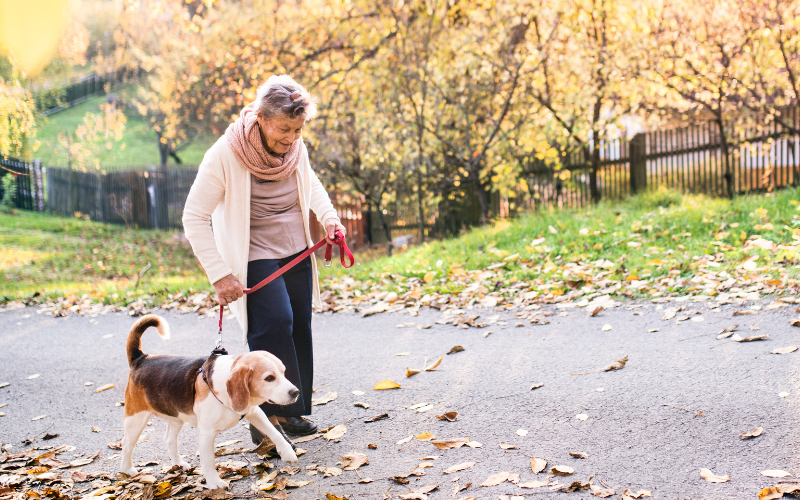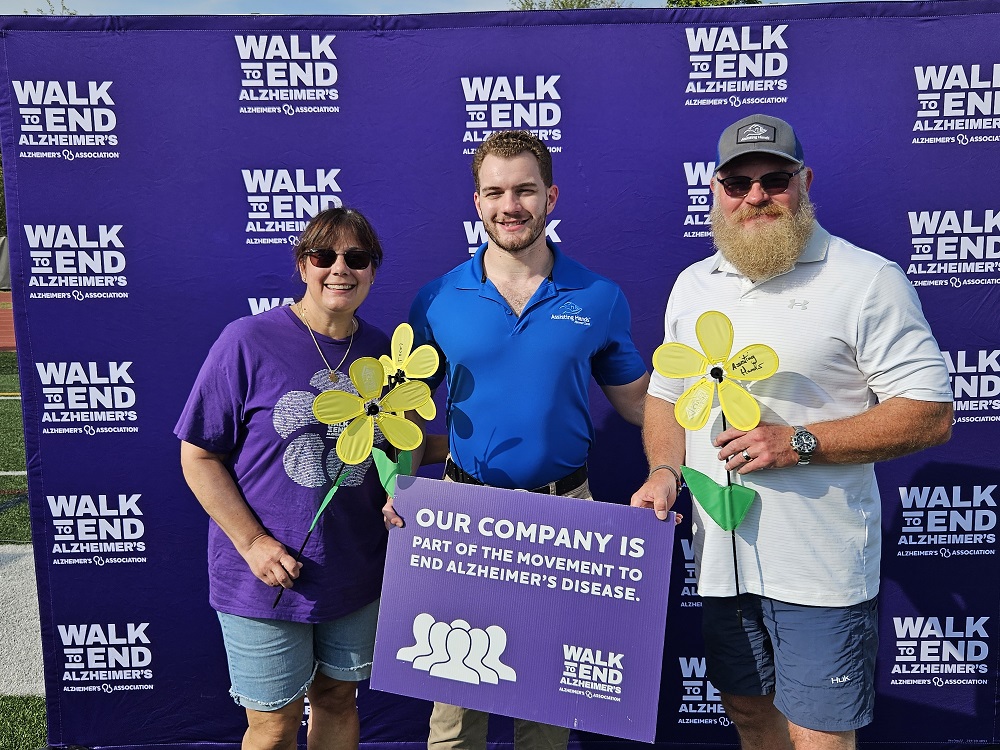Post-traumatic stress disorder (PTSD) occurs in the elderly at a lower rate (about 4.5 percent) than middle-age and younger people. Nevertheless, the disorder is undertreated in the elderly. When PTSD is triggered, it is important for caregivers to understand how to provide optimum care.
PTSD can potentially develop in people who have lived through a traumatic event. However, not all individuals who have experienced trauma develop this mental health condition. Medical experts are unsure as to the exact reason some victims of trauma develop PTSD while others do not.
What are the causes of PTSD?
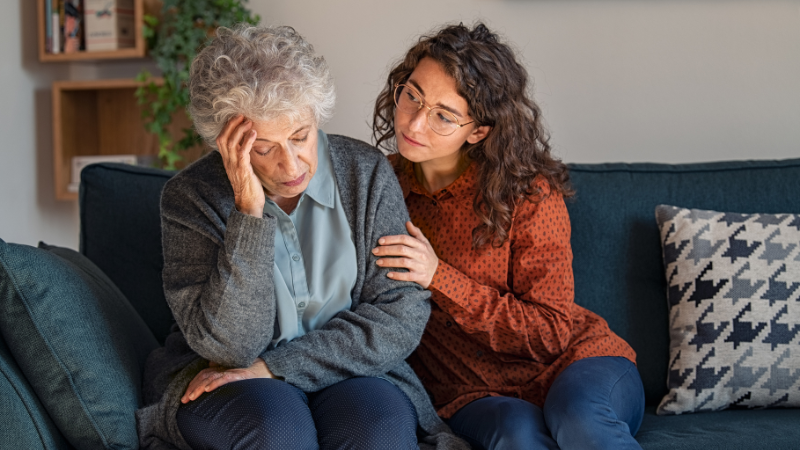
Examples of serious trauma that seniors may suffer include severe illness or injury and the unexpected death of a loved one. Trauma may also be caused by being involved in a car accident, experiencing a natural disaster, like a hurricane or flood, and undergoing severe neglect.
Additional triggers of PTSD include being diagnosed with a life-threatening condition and witnessing a violent death. Seniors who were enlisted in the military at a younger age and participated in military combat may develop PTSD; similarly, witnessing a violent death can cause the condition.
What are the symptoms of PTSD?
After experiencing trauma, some people are able to cope and adjust. However, if symptoms worsen, last for months or years, or interfere with daily functioning, PTSD may be to blame. Symptoms of PTSD may appear within a month or develop years after the traumatic event.
Intrusive memories of the traumatic event may recur in seniors with PTSD. Aging adults living with the condition may experience flashbacks of the trauma. They may also avoid people, places, and activities that remind them of the traumatic event. Severe distress may occur when reminded of the trauma.
Negative mood may affect seniors suffering from PTSD. These older adults may feel hopeless about the future or have difficulty maintaining close relationships. Physical reactions also occur, such as being easily startled, being constantly on guard for danger, and displaying aggressive behavior.
How do caregivers care for seniors with PTSD?
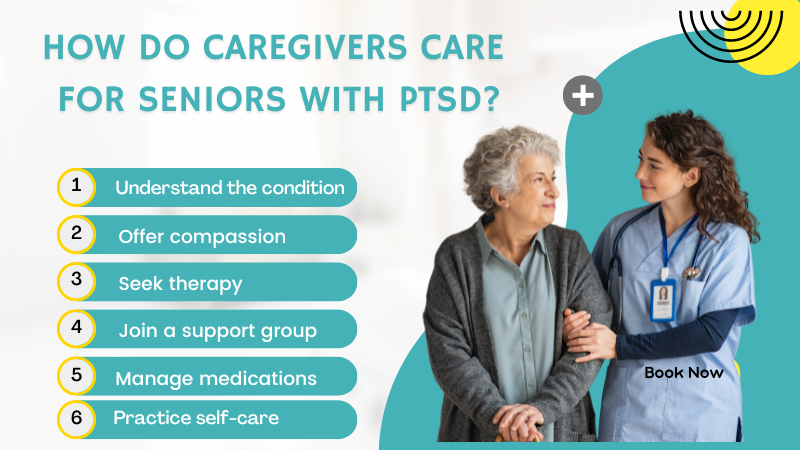
1. Understand the condition
Caregivers who tend to the daily needs of seniors with PTSD must be aware of the abovementioned symptoms. The better a caregiver understands this mental health condition, the better she is able to know what to anticipate and help the senior manage symptoms.
Also, be aware of co-factors that can emerge in older people living with PTSD. Seniors with PTSD who also suffer from Alzheimer’s or other types of dementia may display even greater confusion or experience worsened symptoms. Medications for other illnesses, too, can exacerbate PTSD symptoms.
2. Offer compassion
Caregivers may feel afraid when an elderly individual with PTSD experiences flashbacks and acts erratically. Showing compassion and understanding toward seniors who relive a traumatic episode is helpful. Rather than expect them to snap out of it, realize they need professional help.
3. Seek therapy
Cognitive behavioral therapy has long been shown to be an effective treatment for individuals with PTSD. This form of therapy changes how the senior behaves and thinks about the trauma. Cognitive restructuring helps PTSD sufferers fight feelings of shame and confusion about the past.
Accompany the senior to therapy sessions with a mental health professional and remain a constant source of emotional support. A caregiver may encourage the senior to explore alternative forms of therapy, like a gentle yoga practice, breathing techniques, and mindful meditation.
4. Join a support group

Venting feelings and thoughts about a traumatic event is healing for seniors with PTSD. Many times, aging adults who listen to others who have lived through similar traumatic experiences benefit. Specific support groups are available for combat veterans and those who’ve survived natural disasters.
Providing transportation to a support group gives the senior an opportunity to escape the isolation that trauma and suffering can cause. Anxiety and depression only worsen when seniors remain isolated. Caregivers are encouraged to seek out appropriate support groups for loved ones with PTSD.
5. Manage medications
A senior with PTSD may be prescribed medication by a psychiatrist. Any of four anti-depressants may be prescribed: Zoloft, Paxil, Prozac, or Effexor. Caregivers should manage the medications to ensure the senior remain medication compliant; also update doctors on other drugs the senior takes.
6. Practice self-care
Caring for an elderly individual suffering from PTSD can take an emotional toll on the caregiver. A senior’s angry outburst or strange behavior can overwhelm or stress the caregiver. Negative feelings from the senior may appear to be directed at the caregiver, which can be upsetting.
In order to properly care for a senior with PTSD, it’s critical to not take the angry outbursts personally. Caregivers who practice self-care techniques, such as taking time away to cope, can effectively support the senior and help him regain a better quality of life.
Providing continual care to an elderly loved one suffering from PTSD can be a stressful experience. However, support systems, like Assisting Hands Home Care, are available to help family caregivers in their efforts to ensure the senior receives optimum in-home care.
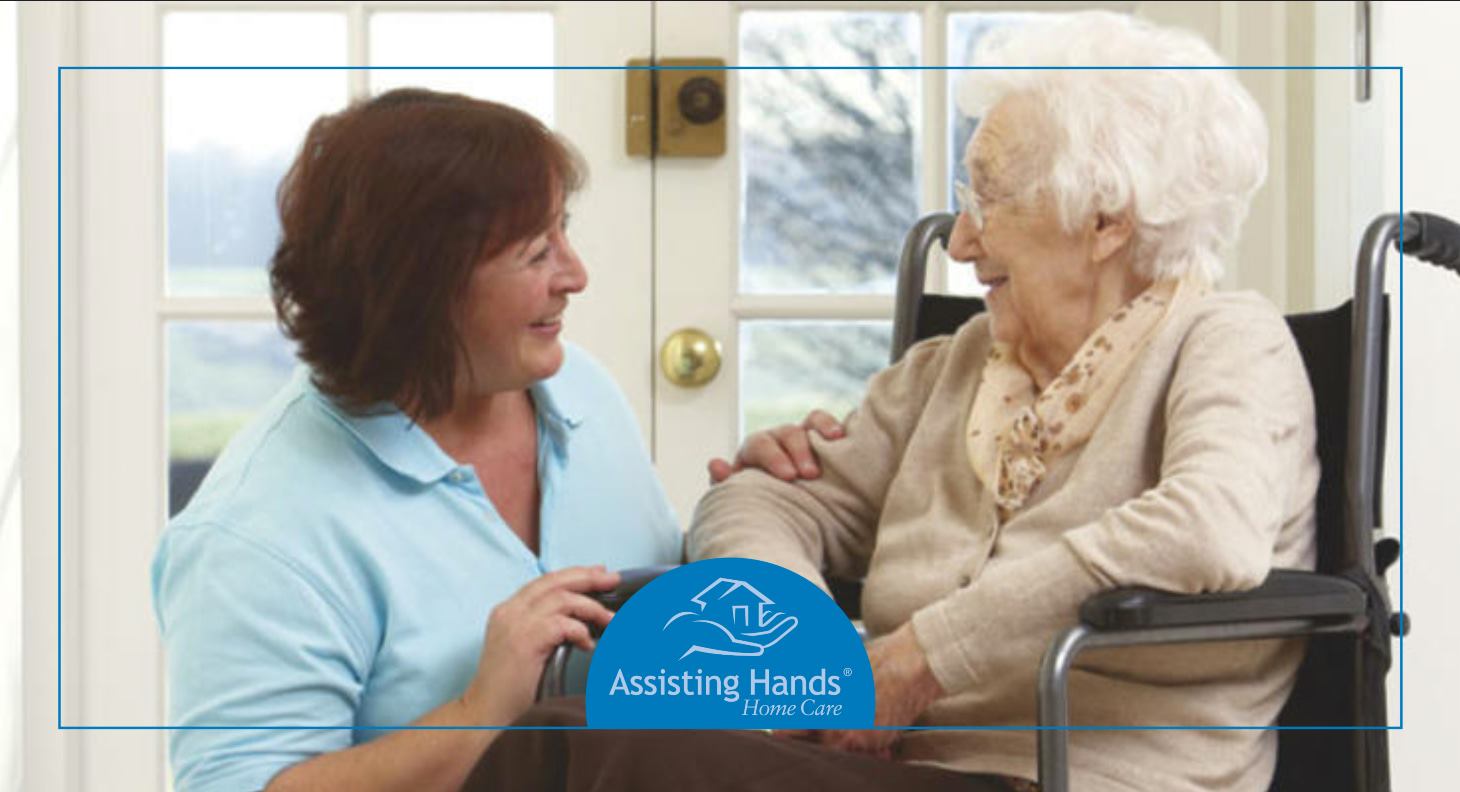
We are a leading home care agency with a team of companion caregivers who are experienced in assisting seniors in the comfort of home. Our caregivers are knowledgeable about the symptoms of various illnesses, including Alzheimer’s disease, and strive to increase comfort and well-being.
Companion care from Assisting Hands Home Care includes help with personal hygiene tasks, transportation to doctors’ offices, medication reminders, and light housekeeping. We converse with care recipients, take them on safe outings, and join them in recreational pursuits to promote socialization.
Regular socialization is critical to the emotional well-being of seniors, and our dedicated companion caregivers contribute significantly to their emotional health. We also tend to the practical needs of elder care recipients, making our non-medical home care services comprehensive and essential.
Families with elderly loved ones living in Matteson, Illinois, and the surrounding areas are encouraged to contact Assisting Hands Home Care for exceptional senior care. We’ll set up an in-home consultation to determine care needs. Call today at (872) 713-9707 to give the senior in your life the best in companion care.






